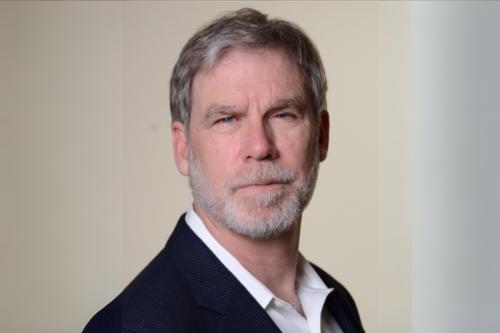
Stanley F. Nelson, M.D.
- Distinguished Professor, Human Genetics
- Dr. Allen and Charlotte Ginsburg Endowed Chair, Translational Genomics
- Director, California Center for Rare Diseases at UCLA
- Co-Director, Center for Duchenne Muscular Dystrophy at UCLA
- Professor, Pathology and Laboratory Medicine
- Professor, Neurology

Stanley F. Nelson, M.D., is a physician-scientist who develops and applies techniques to better understand and diagnose Duchenne muscular dystrophy. The ultimate goal of his research is to identify modifiers of disease progression and novel therapeutic targets.
Nelson develops and implements advanced genomic tools to provide a more comprehensive view of rare DNA variants and their effects on mRNA, which can cause Mendelian genetic diseases — diseases caused by a single inherited genetic mutation — such as Duchenne muscular dystrophy. These tools have already allowed him to discover new genes and rare genetic diseases and to improve the clinical diagnostic workflow through the integration of multi-omic data from patient samples.
Using single-nuclei and single-cell approaches, Nelson dissects the heterogeneous cellular and molecular responses of dystrophic muscle to gene therapy and gene repair. The aim of this work is to identify novel biomarkers of disease and potential therapeutic targets using patient-derived blood and muscle samples, as well as cell culture experimentation.
Nelson’s clinical practice focuses on identifying Mendelian genetic diseases when standard clinical testing fails, as well as assessing and caring for individuals with Becker and Duchenne muscular dystrophy. He also leads clinical trials and has active IRB-approved protocols for the assessment of muscle niche and stem cell function in healthy individuals and those with muscle disease.
His work has led to the launch of clinical exome sequencing on the UCLA campus as well as the largest muscle single-nucleus RNA sequencing dataset, which has facilitated the identification of novel cells within mouse and human dystrophic muscle. By integrating these cutting-edge technologies into his clinical practice, Nelson has improved how these rare diseases are identified and diagnosed.
Research Projects
- Pinpointing cells in human muscle affected by dystrophy
- Identifying molecular biomarkers, or molecules that can be used to identify or track disease progression, for Duchenne muscular dystrophy
- Developing improved methods for diagnosing Duchenne and other rare diseases
- Designing and conducting clinical trials to enhance effectiveness of gene therapies using adeno-associated virus, or AAV, which helps deliver genetic material into cells
- Discovering novel therapeutic targets based on comprehensive assessment of disease-specific alterations of cells in dystrophic muscle that highlight cell-cell interactions amenable to perturbation
-
Medical Board Certification
- Pediatrics, American Board of Pediatrics, 1992
Fellowships
- Pediatrics, Genetics, Stanford University School of Medicine, 1993
- Pediatric Hematology/Oncology, UC San Francisco School of Medicine, 1992
Residency
- Pediatrics, UC San Francisco School of Medicine, 1989
Internship
- Pediatrics, UC San Francisco School of Medicine, 1988
Degree
- M.D., Duke University School of Medicine, 1987
-

